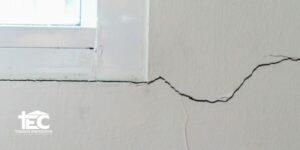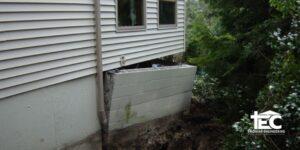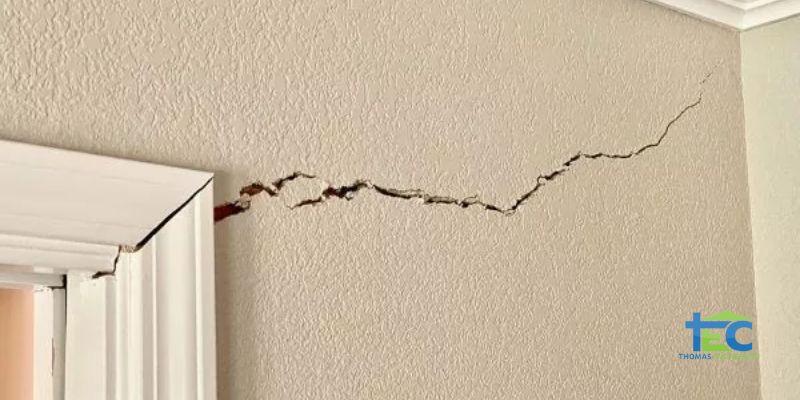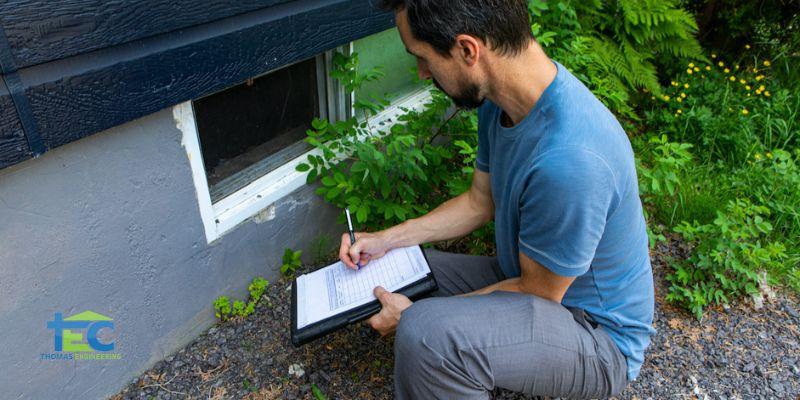
Homeowners, real estate professionals, and individuals responsible for commercial property maintenance in the Dallas Fort Worth area often have different responses when they encounter an initial crack in one of their foundation walls.
DIY vs. Professional Service
One crucial point to remember is that foundation cracks or any indication of foundation problems should not be treated as issues suitable for cosmetic repairs. Ignoring the problem won’t make it disappear; in fact, delaying addressing the severity of the situation will ultimately result in higher costs for professional repairs.
That’s why, at the first signs of foundation issues, it’s wiser to err on the side of caution and seek professional assessment, much like you would for inspections of your windows, exterior siding, or plumbing connections.
The question then arises: how can you determine whether the crack is a simple, shallow concrete fissure or crazing that can be remedied through DIY efforts, or if it signifies a more serious concern that necessitates professional assistance?
When is it necessary to call for an expert foundation inspection? Here are some guidelines to provide you with a better understanding of the situation:
Horizontal Cracks – A Cause for Concern

Horizontal cracks warrant greater attention compared to their vertical counterparts. Pay close heed to the orientation of the crack. If you come across a horizontal crack in a concrete wall or observe stair-step-shaped cracks, it demands immediate consideration. These cracks often indicate intense pressure from surrounding soil pushing against the walls or saturation of the material with excess water. Neglecting this issue may result in bowing or leaning basement walls, reminiscent of those seen in aged convent structures. Upon detecting such a horizontal crack, it’s imperative to reach out to a foundation specialist. When it comes to vertical cracks, their significance typically hinges on their size.
Crack Size – An Important Factor
The size of cracks, particularly if they are large or resemble a “V” shape, should raise significant concerns, especially if you notice their enlargement over time. Employ a ruler to measure the crack’s width, checking if it exceeds 3/16 inch. If it does, it’s advisable to contact a foundation inspector, as this is indicative of a burgeoning major issue.
When the first signs of a crack appear, diligent homeowners should initiate regular monitoring. Document the date when the crack(s) initially appeared on your wall, and keep track of any changes in their dimensions over time.
Expanding Troubles Beyond the Ground Level

When your foundation experiences settling, additional cracks and related indicators tend to emerge. Begin by inspecting your upper floors for cracks in the wallboard, paying particular attention to the upper corners of doors and windows. Also, be on the lookout for windows and doors that become misaligned or start to warp, causing them to become difficult to open or close. These should serve as clear warning signs.
Professional inspectors possess the essential knowledge, resources, and tools required to address foundation concerns. It’s crucial to bear in mind that foundation issues tend to worsen over time. The longer you postpone addressing them, the costlier and more challenging the repairs become. Therefore, prompt action is paramount.
As soon as you notice foundation cracks, it’s crucial to promptly request a professional inspection. With more than two decades of expertise in Dallas Fort Worth clay soils, Thomas Engineering Consultants is well-equipped to address your concerns. If you have any suspicions of foundation issues or encounter cracks on your interior or exterior walls, please don’t hesitate to reach out to us at 817-576-1973.
If you want to proactively protect your home, contact Thomas Engineering Consultants at 817-576-1973 to schedule an appointment for a structural evaluation, which includes a detailed engineering report with actionable items to protect your home’s foundation.






